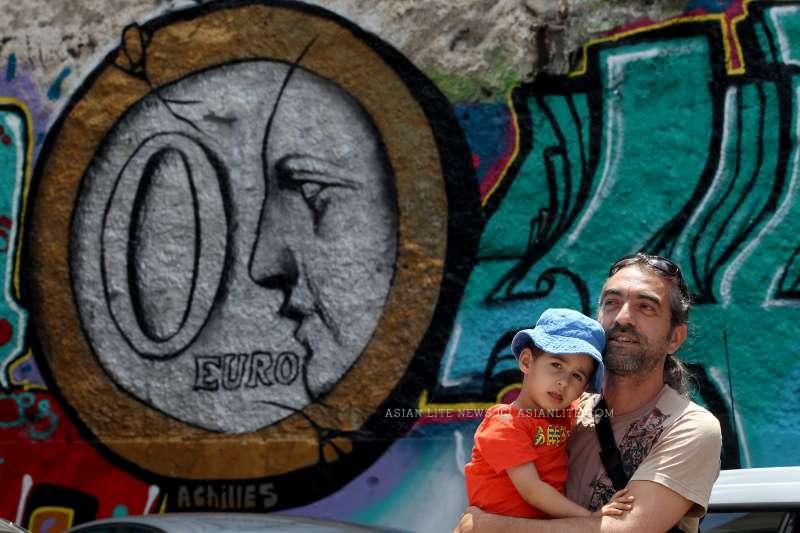Tripras said the ECB proposals “blackmail” and vowed a refusal to the austerity measures. He called for a popular vote on the proposals on July 5….reports Asian Lite News

Greek banks are to remain closed and capital controls will be imposed, Prime Minister Alexis Tsipras says.
Speaking after the European Central Bank (ECB) said it was not increasing emergency funding to Greek banks, Mr Tsipras said Greek deposits were safe, BBC reported.
Greeks have been queuing to withdraw money from cash machines over the weekend.
Tripras said the ECB proposals “blackmail” and vowed a refusal to the austerity measures. He called for a popular vote on the proposals on July 5.
On Saturday, the Euro group financial ministers held an emergency meeting but the Greek Financial Minister Yanis Varoufakis decided to leave midway. The other 18 ministers later accused Athens of breaking off negotiations and giving negative response to the proposals.
Greece is due to make a €1.6bn (£1.1bn) payment to the International Monetary Fund (IMF) on Tuesday – the same day that its current bailout expires. Greece risks default and moving closer to a possible exit from the eurozone.
Mr Tsipras did not give details of how long banks would stay shut, or exactly what controls on capital would be imposed.
Eurozone finance ministers blamed Greece for breaking off the talks, and the European Commission took the unusual step on Sunday of publishing proposals by European creditors that it said were on the table at the time.
But Greece described creditors’ terms as “not viable”, and asked for an extension of its current deal until after the vote was completed.
“[Rejection] of the Greek government’s request for a short extension of the programme was an unprecedented act by European standards, questioning the right of a sovereign people to decide,” Mr Tsipras on Sunday said in a televised address.
“This decision led the ECB today to limit the liquidity available to Greek banks and forced the Greek central bank to suggest a bank holiday and restrictions on bank withdrawals.”
The Greek prime minister said he had sent a new request for an extension to the bailout. “I am awaiting their immediate response to a fundamental request of democracy,” he said.
The announcement comes after a particularly turbulent few days for Greece.
The current ceiling for the ECB’s emergency funding – Emergency Liquidity Assistance (ELA) – is €89bn (£63bn). It is thought that virtually all that money has been disbursed.
The ECB was prepared to risk restricting ELA because the failure of the bailout talks cast new doubt on the viability of Greek banks – some of their assets depend on the government being able to meet its financial commitments, the BBC economics correspondent Andrew Walker reports.
He adds that it is a fundamental principle of central banking that while you do lend to banks that are temporary difficulty, you only do so if they are solvent.
The European Union (EU) afternoon released the latest draft proposals offered to Greece but were later rejected by the Greek government, following Greek parliament’s approval of a referendum on them to be held next week.
“In the interest of transparency and for the information of the Greek people, the European Commission is publishing the latest proposals agreed among the three institutions,” EU’s executive body European Commission said in a statement.
The proposals have taken into account the Greek authorities’ proposals of June 8, 14, 22 and 25, as well as talks at political and technical level throughout the week, Xinhua reported citing the statement.
The proposals were provided to the Greek government on Friday, but the government “unilaterally” ended talks, according to the statement.
It was not the institutions but the Greek government that walks away from talks, Eurogroup President Jeroen Dijsselbloem said on Saturday.
The group also rejected Greece’s request for an extension for July’s referendum, saying “the current financial assistance arrangement with Greece will expire on June 30”.
The Greek parliament approved the referendum in Athens late Saturday night.
The draft proposals outlined measures the creditors have urged Greece to adopt on, among others, fiscal policy, reform on pension, tax and value-added tax.